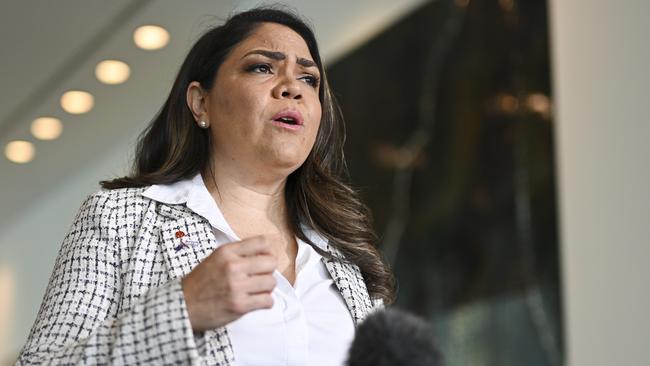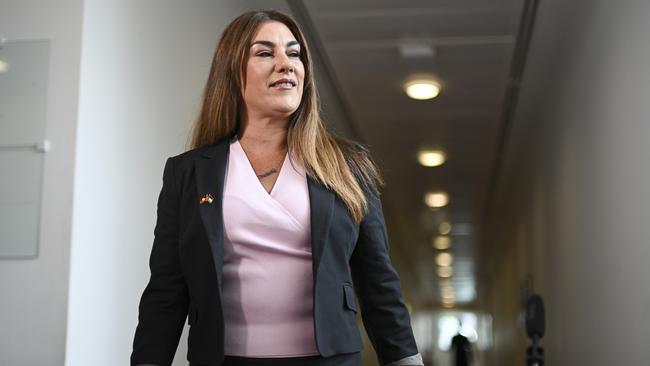Indigenous culture being ‘weaponised’ by activists: Price
Jacinta Nampijinpa Price’s comments came after Labor and the Greens blocked a Senate motion aimed at overturning the decision on the Regis Resources gold project.

The federal government’s rejection of the McPhillamys gold mine and steps to close the Grampian Ranges to rockclimbing show an increased “weaponisation” of Indigenous people and their culture, Jacinta Nampijinpa Price says.
Speaking after Labor and the Greens blocked a Senate motion calling for the overturning of Environment Minister Tanya Plibersek’s decision to effectively block Regis Resources’ McPhillamys gold mine in NSW, Senator Price – the opposition spokeswoman for Indigenous Australians – said Labor’s recent decisions were keeping Indigenous Australians disadvantaged.
The proposed tailings dam for the mine was rejected by Ms Plibersek despite the project not being opposed by the Orange Land Council, which represents traditional owner groups from the area. Instead, the minister acted on concerns raised by the Wiradyuri Traditional Owners Central West Aboriginal Corporation (WTOCWAC), which had argued the mine would interfere with the songlines of the blue-banded bee.
The Orange Land Council has disputed the validity of the claims about the blue-banded bee.
Senator Price said Ms Plibersek had been picking and choosing who to listen to on Indigenous matters.
“Quite often when it comes to Indigenous affairs, what we’re dealing with are those who like to make claims that are sometimes completely false, for their own agenda, whatever that agenda might be. And this decision is certainly based on that,” she said.
“Minister Plibersek should have been listening to the statutory authority, which is the Land Council. And, unfortunately, she’s chosen instead to listen to a breakaway group who aren’t representative of the traditional owners of the area.”
She said the “weaponisation” of Indigenous people with the aim of blocking development was harming traditional owners and the broader community by stifling jobs and development.
“This government is completely against ensuring that Indigenous Australians can benefit in any economic way going forward,” she said.
“But that’s not surprising for Labor, because Labor like to keep Indigenous Australians disadvantaged in order to better control them to gain power and keep the little people down.”
The Senate motion aiming to overturn Ms Plibersek’s decision was defeated 24-27 after opposition from Labor and the Greens. Senator Price and opposition environment spokesman Jonno Duniam also introduced another motion seeking an inquiry into restrictions put in place, or proposed, to limit public access to areas including parts of the Grampians National Park in Victoria, Mount Warning in NSW, and Lake Eyre in South Australia.
The motion was expected to go before the Senate either late on Wednesday or early Thursday. “You can look after land, you can care for land, you can care for particular sacred sites without completely blocking them off to the public,” she said.
“We should be creating opportunity, we should be sharing culture if we want to create this thing called reconciliation that I keep hearing about.”
Among those opposing the Coalition’s motion on McPhillamys was Lidia Thorpe, the former Green turned independent.

She said the Aboriginal Heritage Protection Act used by WTOCWAC was the last line of defence for First Nations peoples.
“It is clear that certain groups like the Coalition and mining industry claim to support protecting First Peoples cultural heritage until it impacts their bottom line,” Senator Thorpe said.
Earlier this month, Regis announced it would take action in the Federal Court challenging Ms Plibersek’s decision. A first hearing on the matter could take place before the end of the year.
The office of Ms Plibersek declined to comment on the defeat of the McPhillamys motion.






To join the conversation, please log in. Don't have an account? Register
Join the conversation, you are commenting as Logout